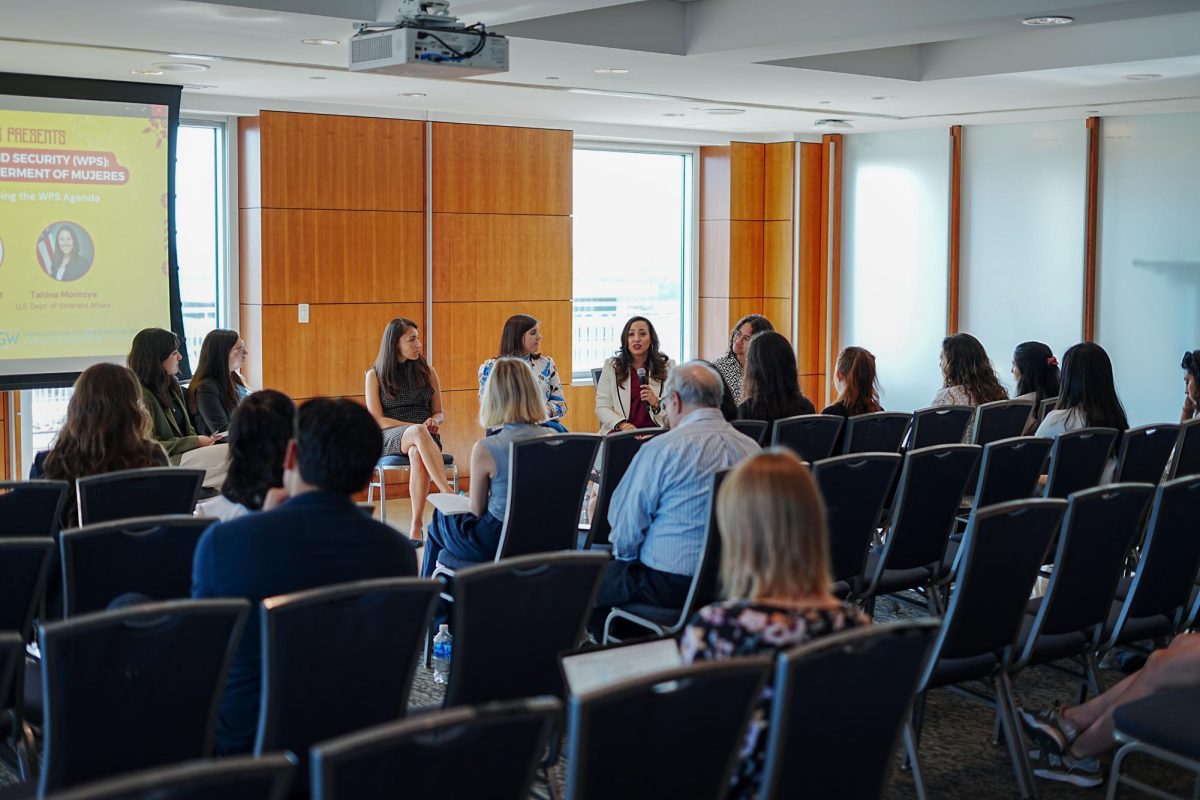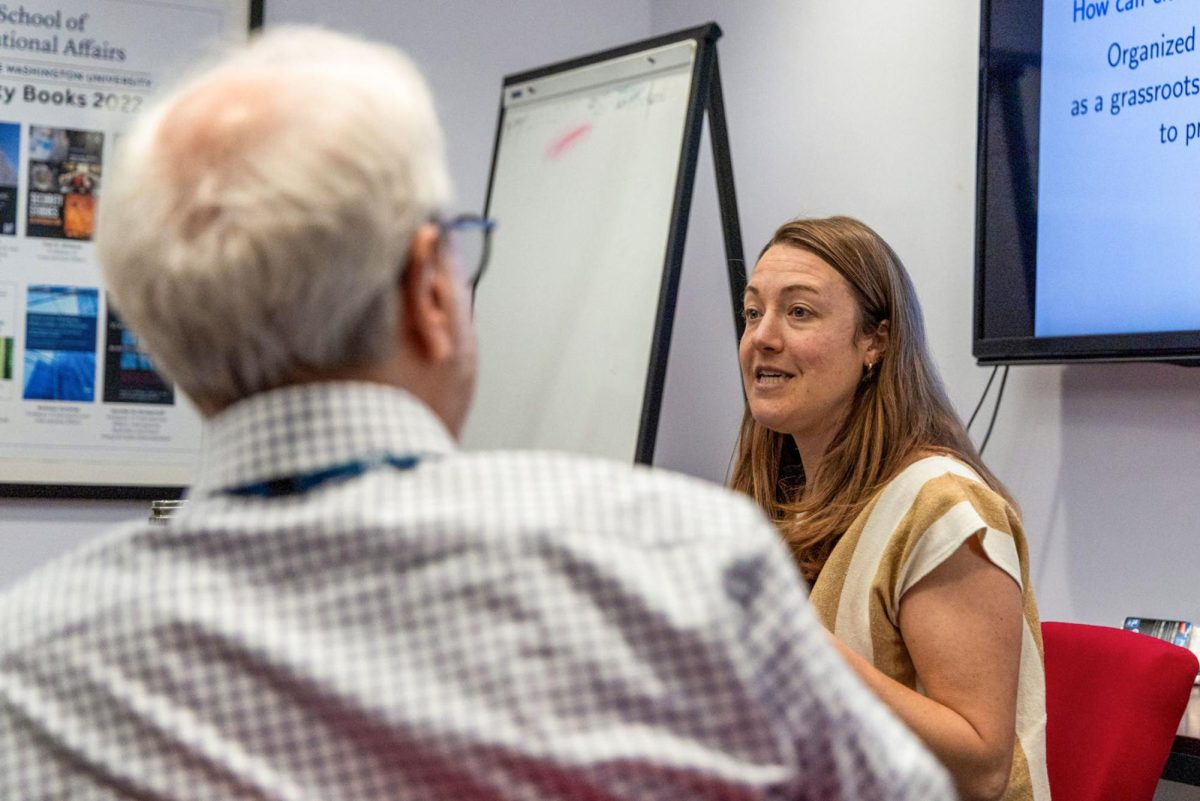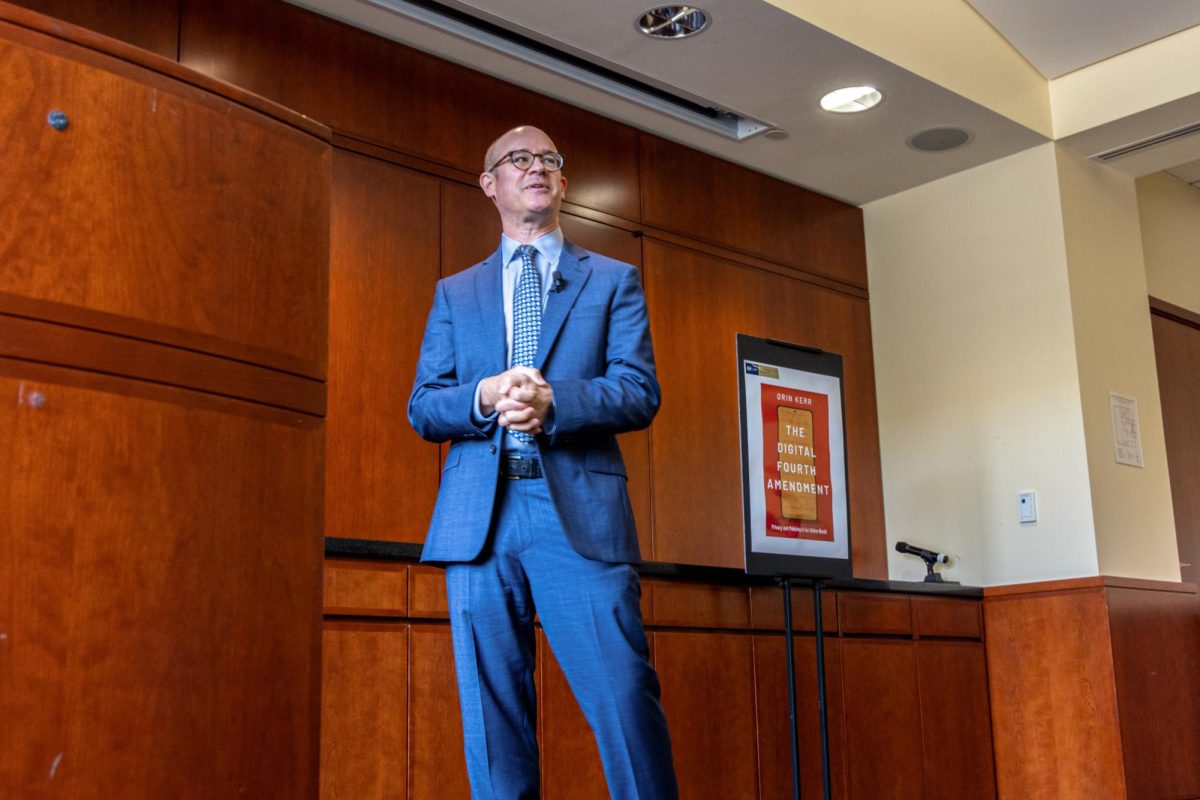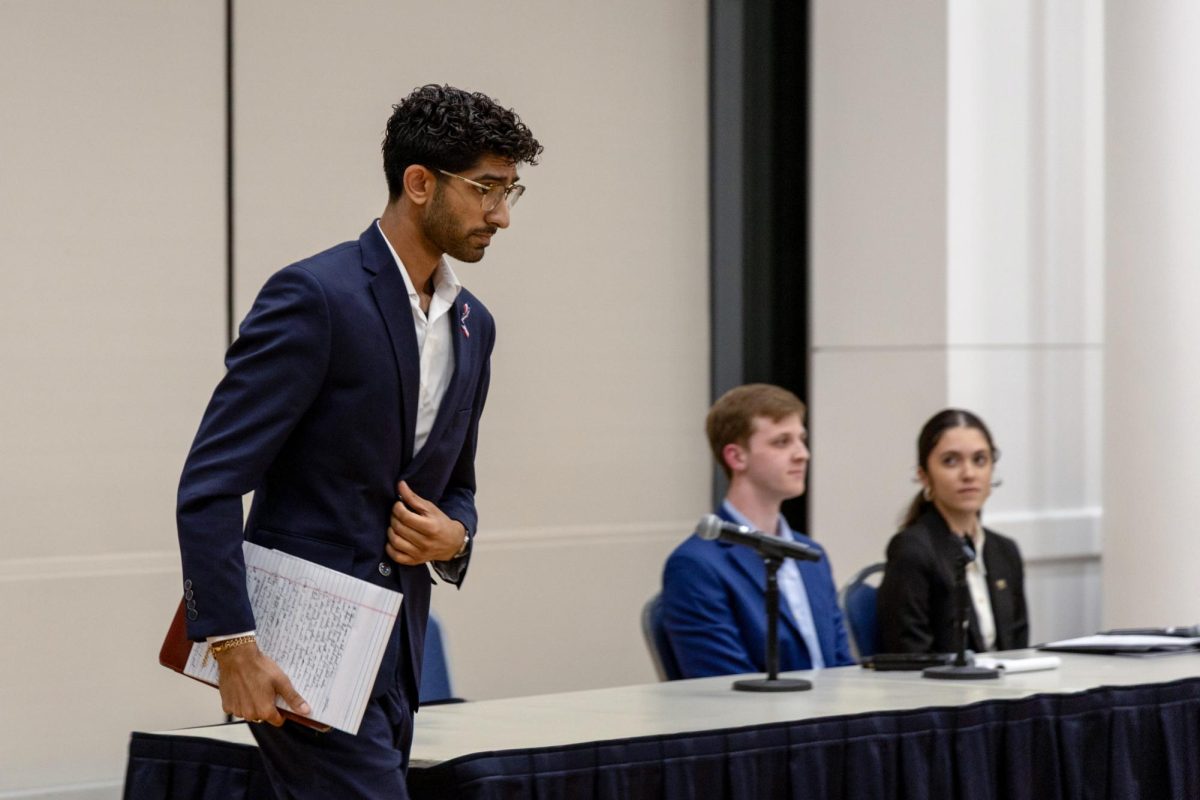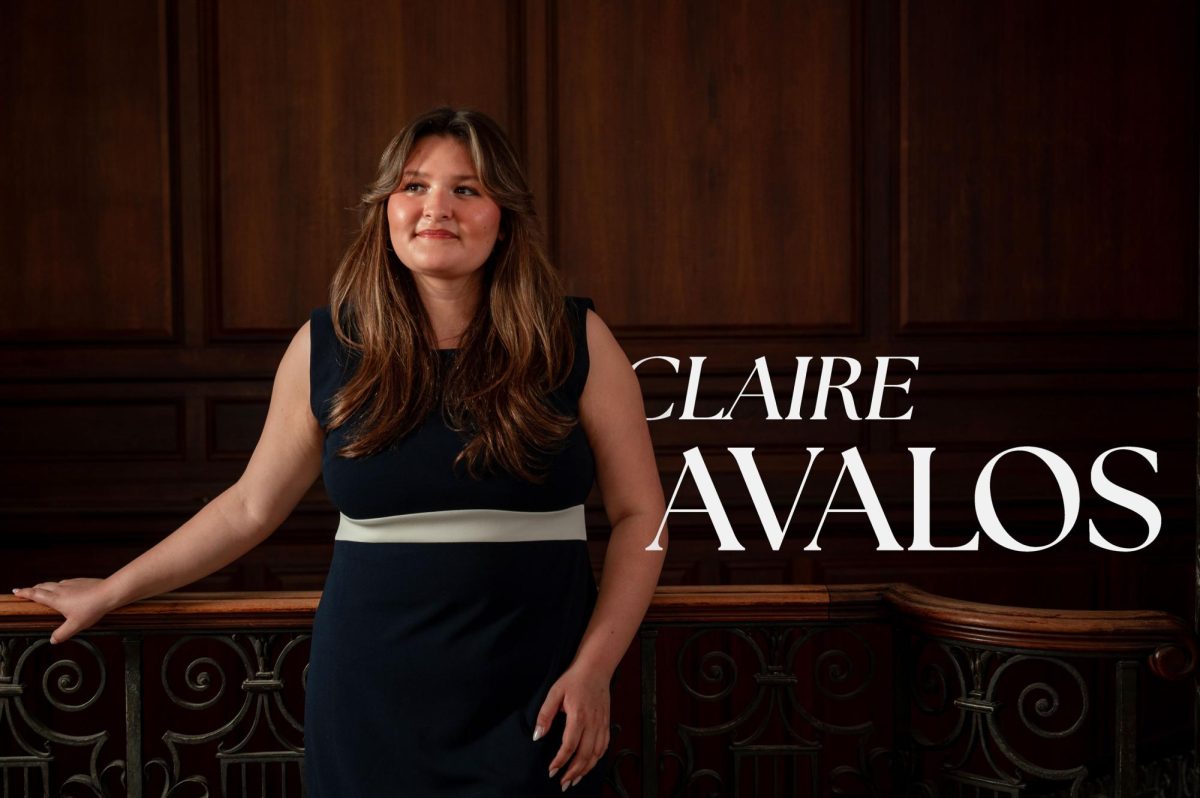Four female leaders in security and foreign policy discussed their experiences navigating the workplace as Latinas at an Elliott School of International Affairs event Saturday.
Vera’s Ending Girls’ Incarceration Initiative Senior Advocacy Associate Taciane Montoya, Excelity software developer lead Melissa Wright, Sara Plana — the senior intelligence assistant to the under secretary of defense for intelligence and security at the U.S. Department of Defense — and Strategic Advisor at the Department of Veteran Affairs’ Veteran Experience Office Tahina Montoya discussed the influence of their Latina identities on their roles as leaders. The Student Consortium on Women, Peace and Security hosted the panel.
Sophomores Maya Nair, the consortium’s co-director of student and alumni engagement, and Adelina Hernandez, the consortium’s director of programming, moderated the discussion. The panel, titled “Latinas Advancing Women, Peace and Security: Celebrating the Inclusion and Empowerment of Mujeres,” highlighted WPS, a U.S. Department of State initiative to integrate the needs and perspectives of women into foreign policy.
Senior Madeline Ley, the consortium’s director of social media, gave introductory remarks and said the organization organized the panel to spotlight the diversity of Latinas and their work to advance WPS.
Taciane Montoya said the racial discrimination she faced in college negatively impacted her mental health and contributed to her “identity crisis” as an Afro-Latina. She said growing up in poverty has allowed her to relate to the young people she works with at Vera, a national initiative seeking to address race and gender inequity in communities and within the legal system.
“What I bring to my work is my place of authenticity, and that’s why I’m able to connect with the youth,” Taciane Montoya said.
Tahina Montoya said she aims to advance the WPS agenda by being inclusive of noncitizen veterans, encouraging a VA department-wide system of translating public communications about veteran benefits into other languages. She said Latinos should feel welcomed serving in the military as their “true selves” because Latino soldiers are the fastest growing minority population in the military.
Taciane Montoya said she wished she worked alongside more young and “system-impacted” people — those who are affected by mass incarceration — earlier in her career so that the incarcerated girls she works with would have seen themselves more in the people who helped them, like herself.
“It would have been a lot nicer to have more representation of young people as well as folks with more lived experiences in the room, talking about policy reform and elevating issues within their communities,” Taciane Montoya said.
Plana said she and Tahina Montoya organized two events for Women’s Day on March 8 for the Defense Department — a mentoring session for women in the department and a discussion with Deputy Secretary of Defense Kathleen Hicks, the first woman to serve in the role.
“On the advocacy side, I try as much as I can to elevate women, and women of color in particular to mentor them,” Tahina Montoya said. “I’ve benefited substantially from female mentors and women of color who were very generous with their time.”
Wright said her experience as a Big Sister at Big Brothers Big Sisters of America — a nonprofit that supports one-to-one mentoring relationships between youth and adult volunteers — has taught her to maintain connections with other women for potential work opportunities and self-advocate.
“Stay connected with your women network,” Wright said. “Don’t wait to be invited to the table. Claim a seat at the table.”
Wright said she attributes her strong communication skills to the Latinas in her family. She said she uses those skills, as well as listening, to speak up and “champion” other women because sometimes the “quietest voice” has the most to offer.
“There are other women that have a voice or may be timid or are afraid of asking questions, and I champion them,” Wright said. “And when I say ‘champion,’ I mean I give them the opportunity because I often notice that every voice counts.”
Wright, born with the name Xiomara Melissa Reina, said she was “afraid” of teachers and employers overlooking her throughout her life because of her name. Wright said she received more responses from employers when she omitted “Xiomara” from her resume.
“We need more representation because I didn’t want to have to hide my name,” Wright said. “I didn’t want to have to hide, and I’m not alone.”


